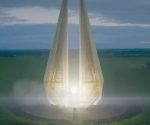Axiom-4 setback: Falcon-9 oxygen leak, stormy skies delay ISS flight; why India’s Shubhanshu Shukla must wait for maiden spaceflight – The Times of India

The much-anticipated Axiom-4 mission, which aims to send Indian astronaut Shubhanshu Shukla and three other international crew members to the International Space Station (ISS), has faced yet another delay. Originally scheduled for May 29, the mission has been postponed multiple times due to a combination of technical issues and adverse weather conditions. Technical snagThe latest setback comes after SpaceX identified a liquid oxygen (LOX) leak in the Falcon-9 rocket during a post-static fire inspection. This issue, which traces back to the rocket’s previous Starlink mission, was initially undetected during the booster’s post-flight refurbishment. SpaceX Vice President William Gerstenmaier explained that the leak was discovered during a seven-second hot test on the launch pad, which was intended to validate the performance of the booster stage. In addition to the LOX leak, engineers also identified a thrust vector control issue with engine five. “Space flight is really hard, and we’re learning every day,” Gerstenmaier said. Weather woesCompounding the technical difficulties, the mission has also been hampered by unfavorable weather conditions. On June 10, the launch was postponed by a day due to bad weather in the flight path. SpaceX and Axiom Space have been closely monitoring weather patterns to ensure a safe launch window. The Axiom-4 mission is a significant milestone for India, Poland, and Hungary, marking a return to human spaceflight for these nations. The crew including veteran astronaut Peggy Whitson, includes Polish engineer Sławosz Uznański, Hungarian researcher Tibor Kapu, and India’s Group Captain Shubhanshu Shukla. The 14-day mission aims to foster international collaboration and scientific research aboard the ISS. ISRO Chairman V Narayanan, who is in the US to oversee the launch, confirmed the delay and expressed confidence in SpaceX’s ability to resolve the technical issues. “The ISRO team discussed with experts at Axiom and SpaceX, and it was decided that the leak would be fixed and necessary validation tests conducted before clearing for the launch,” Narayanan said. SpaceX has also assured that once repairs are complete and pending range availability, a new launch date will be announced.
















